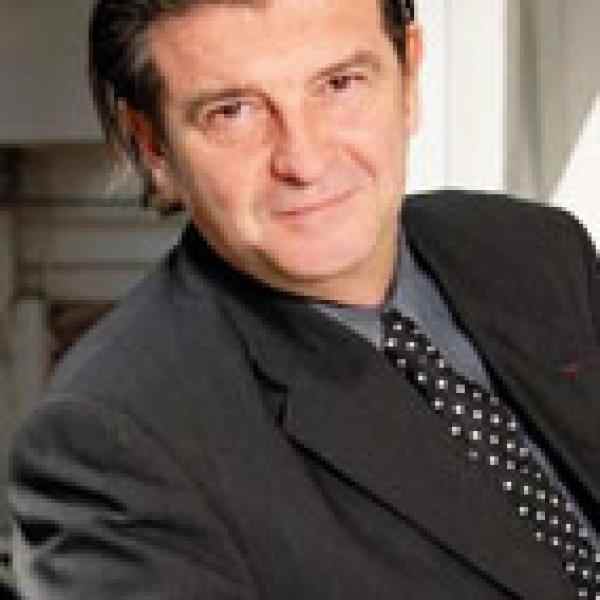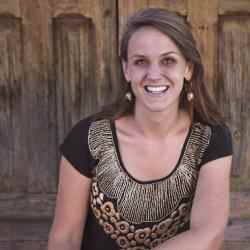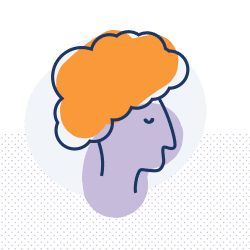Introduction
Over the last twenty years, Jean-Marc Borello has developed and implemented new practices throughout the health and social services sector, and proven how innovation and competition in providing social services will create widespread social impact through economies of scale. His new way of delivering social services has influenced public policy, and his efforts are creating the legal and financial space for citizen organizations to thrive and compete with the business sector.
The New Idea
Through a comprehensive approach to combating poverty, Jean-Marc is transforming how the citizen sector and welfare state operate in France. French health and human services programs traditionally address poverty as separate problems of health, housing, or exclusion from the labor force, yet these issues are interconnected. Jean-Marc believes the best way to help marginalized, low-income people is to understand their individual needs and to offer each person an appropriate package of solutions—from health and welfare to job insertion.
Jean-Marc created the SOS Group, a holding of citizen organizations (COs) that operates as a laboratory for the continual improvement of social services. SOS designs, tests, evaluates, and systematizes innovative social programs to be adopted and expanded by the French government. By bringing his organization to a critical size, Jean-Marc enables high-quality services and operations throughout the spectrum of social need, generates cash for permanent investment, and creates an opportunity for innovation. SOS is often solicited, most notably by the government, to adopt and realign health and human services organizations. Due to the scale of his operations, his credibility and recognition in the social sector, and the quality of SOS’s services and impact, Jean-Marc has gained substantial negotiating power not only with the government, but also with businesses and financial markets—which are expressing an increasing interest to partner with him.
The Problem
For decades in France, successive governments and ministries (i.e., health, housing, education, and family) have created short-lived health and human services programs that have often been at odds with one another. This pattern has resulted in a series of inefficient and expensive program silos. In the field of job insertion, for example, France has dozens of regulations and programs that have been layered on each other over the past thirty years. These government-subsidized job insertion programs and the organizations that run them are particularly disconnected—competing for the same target groups, and often having a limited impact. The jobs available through these programs may be dreary, in sectors such as construction, renovation, and waste removal, and fail to meet their goal of building self-esteem or confidence. Also, because of a lack of structural clarity and communication between different services, participants often go from one program to the next (and benefit from various subsidies each time), without building a consistent professional integration path to meet their needs and abilities.These problems are reinforced by a governmental culture of operating health and human services with a top-down approach. Policies are driven by short-term political stakes, budget allocations, and constraints; losing sight of the long-term needs of those they are meant to serve. In addition, policymakers tend to be bureaucrats with a limited understanding of marginalized communities. As a result, health and human services seem to operate with a logic of unilateral service provision, without concerning themselves with the efficiency and quality of results.Apart from direct government-run programs and services, there are over 200,000 COs in France providing health and human services. This fragmentation weakens the sector. Indeed, these small organizations face important challenges: 1) To expand, they need more resources to sustain their operations 2) They tend to be dependent on public subsidies, and hence, invest a lot of time and resources on proposals and reporting to local, regional, and national governments—they cannot withstand public budget fluctuations 3) They tend to offer low salaries—making it difficult to attract and retain talented professionals 4) They do not have the means to invest in research and development to improve their services.As a result, these organizations cannot compete with private groups that are progressively expanding in the sector (i.e., taking over the management of hospital groups, retirement homes, and other health and human services) at the expense of disadvantaged groups.
The Strategy
Jean-Marc created the SOS Group to bring a holistic approach to at-risk groups, and to help them integrate into society. While he began with the drug addicted and expanded his reach to all excluded groups, Jean-Marc realized it was necessary to provide joint access to health services, housing, and employment. The SOS Group is structured around three complementary lines of activity: SOS Drug International, SOS Housing and Health, and Aterna Group (grouping all job insertion activities), which target people in all age groups, from infants to the elderly. All activities are designed for the people they serve, and more specifically, to employ them with a variety of attractive opportunities, including fair-trade businesses, event planning, and luxury transportation services. One successful company under the SOS umbrella employs marginalized people to organize events at the Stade de France, France’s largest sports arena in the north of Paris. Even activities unrelated to direct social services (besides the job insertion component) serve as a revenue stream for SOS activities and further investment.SOS is an incubator for continual innovation and improvement. Jean-Marc has designed the Group to facilitate experimentation and improvement. The launch of each new activity follows a very clear cycle: 1) Creation of a workgroup and identifying a project leader 2) Experimentation and improvement within the SOS Group 3) Presentation of methodology and results to key government stakeholders to convince them to generalize the activity. The third step is possible because Jean-Marc and his teams are able to evaluate not only their social impact, but also the economic advantages of incurring reduced cost, which encourages the government to implement SOS’s methodology.Several regulations and governmental programs have been inspired by the SOS Group, notably in the field of mental health care.Since the SOS Group has a staff 2,000 and an annual budget of €120M (US$159M), spread over 130 institutions under the umbrella of 23 organizations, with a growth rate that will mean doubling in size within the next three years, Jean-Marc devotes a lot of attention to recruiting high potential professionals, and fosters an entrepreneurial work environment, encouraging staff to pursue their own initiatives. He also places an emphasis on staff retention—a challenge in the social sector—by encouraging career paths and paying SOS staff members well above the social sector’s average, towards the equivalent of private sector salaries. This unique management structure aligns with Jean-Marc’s vision for the Group as a model for the social sector, with a diversity of activities and funding sources than can be replicated by others. Jean-Marc applies similar organizational principles in his external growth strategy, for example, when he absorbs struggling social sector organizations of a certain size under the SOS umbrella.To handle the internal challenges of growing the organization at such a rapid pace and scale, Jean-Marc created a strategy department with five executives that are charged with researching new management structures and channeling new internal and external expansion opportunities.
The Person
Not really inspired by school, Jean-Marc began to work with troubled teenagers from low-income backgrounds at the age of eighteen, and had to learn to interact with some that were older than him! He developed strong empathy and human relations skills and subsequently spent many years working in human services programs as a street educator for marginalized youth, during which time he realized the scope of their needs.Jean-Marc then worked in the cabinet of Gaston Deferre, the Mayor of Marseille, and followed him to the Ministry of Interior and Decentralization in 1981. During these years, Jean-Marc learned the intricacies of the governmental system, developed a broad network of acquaintances, and discovered the limits of top-down policy programs, especially in the field of health and human services.In the early 1980s, Jean-Marc created SOS Drogue International, his first organization, which went on to become the initial pillar of the SOS Group. To pay for his living expenses, he accepted a job as CEO of a group of hotels, restaurants, and night-clubs located in Paris and New York. For more than ten years, Jean-Marc spent his days working on his social endeavours, and his nights managing a company, where he developed his management skills. In the mid-1990s, Jean-Marc decided to focus on SOS full-time, and took the group from a small CO working for job insertion of former drug addicts, to a nationally recognized group influencing public policies, employing thousands of staff, and impacting the lives of millions.An atypical entrepreneur, Jean-Marc is entering a new stage of his career that he calls, “a fourth professional life.” He will focus his efforts on strengthening the entire social and health services sectors. Jean-Marc is also creating an investment bank for the citizen sector, and is working on a new legal framework for COs with access to capital and career development for young professionals in the sector. From the launch of Ashoka in France, he has been engaged with Ashoka Fellows and has developed a strong connection with the organization.




